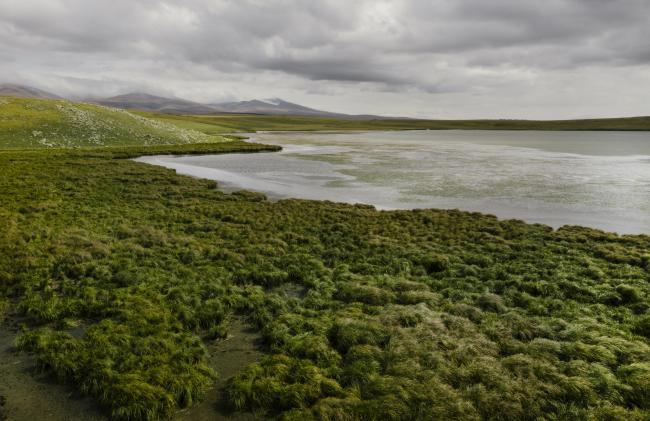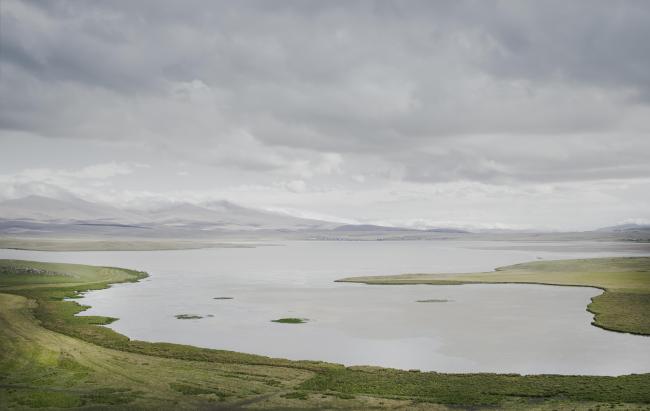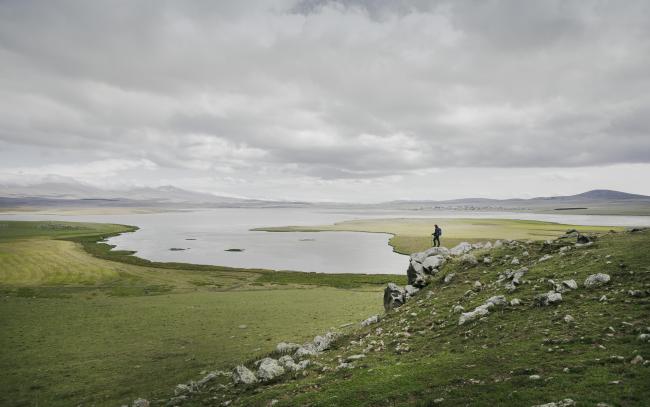Madatapa Lake
Madatapa Lake
- Country:
- Georgia
- Site number:
- 2435
- Area:
- 1,398.0 ha
- Designation date:
- 08-07-2020
- Coordinates:
- 41°10'57"N 43°46'53"E
Carousel
CarouselMaterials presented on this website, particularly maps and territorial information, are as-is and as-available based on available data and do not imply the expression of any opinion whatsoever on the part of the Secretariat of the Ramsar Convention concerning the legal status of any country, territory, city or area, or of its authorities, or concerning the delimitation of its frontiers or boundaries.
Madatapa is a shallow freshwater lake, surrounded by marshes, boggy meadows, rivers and streams. It is situated on the Javakheti plateau, in southern Georgia, and forms part of the area’s mountain steppe. It is one of the largest lakes in the region, and is characterized by its representative biodiversity. Because it is located along the African-Eurasian migration flyways, the Site is a very important resting and staging spot for waterfowl. It supports more than 200 species of birds, many of which are internationally threatened, such as velvet scoter (Melanitta fusca), sociable lapwing (Vanellus gregarius), Dalmatian pelican (Pelecanus crispus) and common pochard (Aythya ferina). The lake is especially important for the nationally endangered common crane (Grus grus), which is found in internationally important numbers in the Site. This makes the wetland one of the most popular spots for birdwatching. Overgrazing, invasive species, pollution from cattle farming, illegal hunting and eutrophication as a result of damming activities are the main threats to the Site.
- National Protected area - Madatapa lake managed reserve
- Other international designation
- GE2435RIS_2010_en.pdf
- GE2435_map200714.jpg
- GE2435_taxo200716.xlsx





